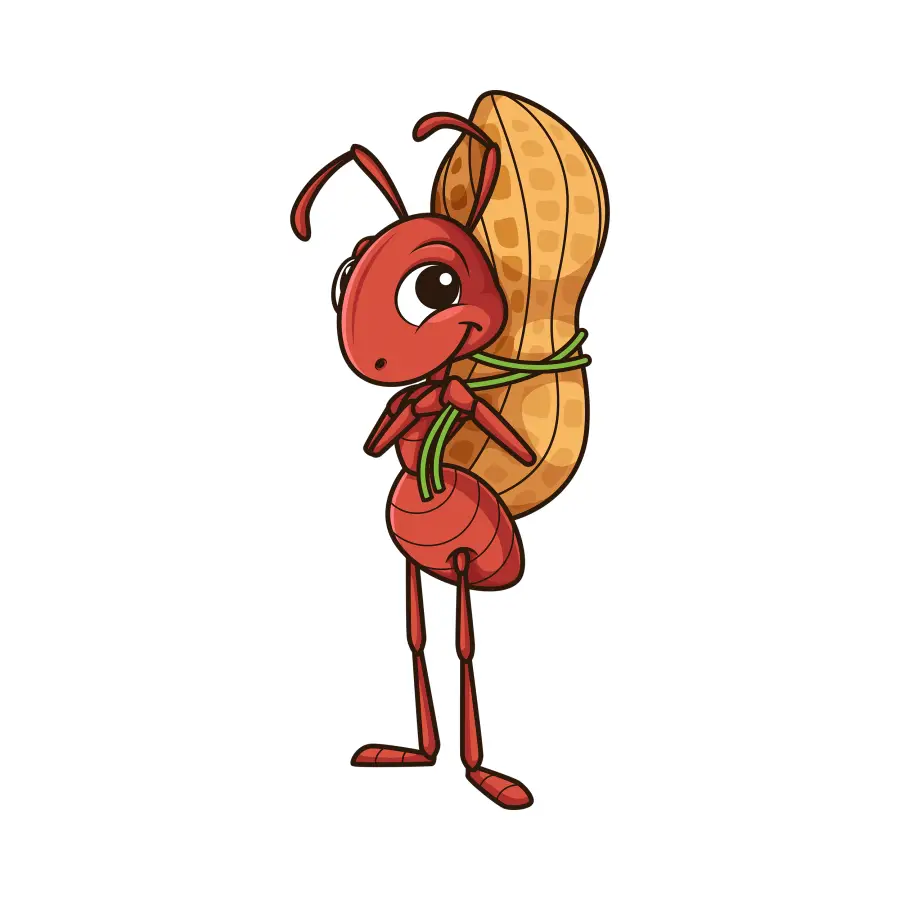It’s safe to say that the versatility of peanuts is well documented. Heck, famed scientist George Washington Carver literally discovered more than three hundred different applications for the peanut, a fact that never ceases to blow the mind.
You most definitely can put peanut shells in a compost heap or pile. Fully intact shells can take a while to decompose so crushing the shells to speed up the process is important. With crushed peanut shells, there is a risk of soil compaction so cottonseed mill grains should be added.
Our focus in the following article is on whether any of these uses extends to peanut shells. Do peanut shells break down and release nutrients for a compost heap? What else can they be used for?
Let’s find out!

Contents
Do Peanut Shells Decompose?
In a nutshell (pun intended) …yes! Peanut shells do break down and decompose. Additionally, there are a few ways you can even accelerate the process.
Shells are a great addition to your compost piles as they are a great source of NPK (nitrogen, phosphorous, and potassium), which is crucial for the rapid growth and vibrancy of plants. Shells also have a few beneficial micronutrients like magnesium and zinc, which are always beneficial for organic compost.
A 2019 study published in the International Journal of Environmental and Rural Development (IJERD) revealed the nutritional impact of peanut shells.
Two separate corn crops were studied from the seedling stage to the harvest. One crop had crushed peanut shells added to its soil, while the other was left untreated. Irrigation and other elements were all held equal and no other fertilizers were used throughout.
As the study progressed, the treated corn plants were growing at a visibly quicker rate than the control plants. At the end of the study’s four-month duration, the treated plants were (on average) 15 centimeters (5.9 inches) taller than the plants with no fertilizer.
Get some of these versatile peanuts in their shells and start one of the many uses for them I’ve listed below. I recommend this popular choice from Amazon: Hampton Farms Unsalted In-Shell Peanuts
Furthermore, not only did the treated plants reach harvest time quicker, but their yield was significantly richer and healthier than that of the control. Even the corn grains from the peanut shell soil were in better shape than those from the untreated soil.
This study, and many others like it, are irrefutable evidence that peanut shells do decompose and provide essential nutrients and minerals beneficial to plant life. Adding peanut shells to your compost will boost its physicochemical properties. When you do add it to your plants, the compost will help create a conducive environment for efficient and consistent growth and yields.
According to the National Peanut Board, decomposing peanut shells are also a rich source of carbon. Carbon is consumed by several respiring microbes, which gives them even more energy to break down organic matter.
Some other great articles from LawncareGrandpa.com…
- Japanese Maple Syrup? Is There Syrup From Japanese Maples?
- Can You Eat Cabbage Leaves – Are The Outer Ones Edible?
- Are There Male And Female Bananas? (Surprising Answer)
How To Make Peanut Shells Decompose Faster
Of course, there are ways you can expedite the decomposition process.
- Firstly, for composting, you want to opt for unsalted peanut shells. As you probably know, salt is a preservative, which means your shells will take a much longer time to break down than if they weren’t salted.
- Another reason to avoid salted peanuts (or salted anything, really) in your composting is the fact that salt can increase compost and, eventually, soil sodium content. Sodium can be pretty harmful to plants so it’s best to avoid adding more of it to your organic fertilizers.
- Luckily, you can “unsalt” your shells yourself pretty easily. All you have to do is soak the shells for about 10-12 hours. To be sure of minimal salt content, we recommend that you change the water halfway through the soaking.
- The next step to speeding up shell decomposition is to literally break the shells down. This can include crushing the shells or grinding them down to fine powder. The more intact the shell is, the slower it will break down and release its nutritional content.
Inversely, the smaller the shell particles, the quicker they will decompose. We recommend grounded shells like the ones used in the IJERD study. One simple way is to bag your shells in a plastic bag and use a rolling pin to crush them.
Avoiding Soil Compaction With Peanut Shells
The main problem with breaking up shells into their smaller fragments is that they can get compacted in the soil, especially after watering, which could hinder the water’s access to plant roots. The compacted mulch may also reduce soil drainage, which increases the chances of problems like root rot.
One possible solution to compaction is to mix the ground shells with cottonseed meal.
Cottonseed meal grains may be small, but they are still large enough to prevent compacting of soil air spaces. Additionally, cottonseed will also supplement the nitrogen supplied by your shells without burning your plants. Cottonseed meal also has loads of micronutrients and essential trace elements. It is also very affordable and easily accessible.
If you are adding the ground-up shells to a compost heap, you should add a layer of green matter on top to insulate the decomposition process. The heat and moisture will act as a catalyst for microbes and enzymes, which will speed up the rate of break down. The compost mixture must then be mixed once a week until it is ready to be applied.
What Can I Do With Old Peanut Shells?
While peanut shells are an excellent addition to DIY organic fertilizers, that is far from their only use. Much like the nuts they protect, the shells are jacks of many a trade.
You can do a lot with old peanut shells. They can be used for solutions to problems in industries from manufacturing to shipping and from camping to food preparation. They are good insulators, sources of fiber, and substitutes for other everyday use products.
One basic use for old peanut shells is starting fires. It turns out peanut shells make excellent kindling due to their high flammability. Great for camping, barbeques, and more. The smell the burning shells puts off will also be a welcome change to the twigs, leaves, or cardboard that many regularly use.
Interestingly, if not appetizingly, peanut shells can also be eaten…provided they are not treated with harmful chemicals. Shells are actually a rich form of fiber and may prove to be a lifesaver if you’re lost or trapped somewhere without access to other food.
Cats can also use peanut shells to go ‘potty’. That’s right, you can use your old shells as kitty litter if you and your feline pal are in a pinch. All pet owners know of the outrageous increases in pet supply prices. This is a way for us to reuse something that routinely ends up in landfills.
If you have fragile goods to transport, you could insulate them with a layer of peanut shells. Collectively, peanut shells can absorb a lot of force and protect items as well as any bubble wrap. This application would call for intact shell halves to be most effective. Crushing the shells is not necessary.
Of course, we can’t ignore peanut shells’ application in manufacturing.
Shells can be used to make all sorts of items, including plastics, wallboards, soaps, cosmetics, and even hydrogen-based fuel. Nutty.
In a study done by MDPI, Basel, Switzerland, even raw energy production for use in industrial applications and residential heating settings of peanut shells can solve many problems with one solution.
The growth and processing of peanuts is the number one producer of agroindustrial waste in the world. This is due to the peanut shells left over after they have been processed or eaten by consumers.
As the study asserts, there is great potential energy stored within these shells that can solve the problem of waste and energy production if utilized. Simply telling developing areas of the world like Asia which produces 65.3% of the world’s peanuts and Africa that produces 26.2% that they must curtail their industries is unacceptable.
A proper solution would be for us as consumers and industry leaders as producers to come up with uses for these shells. This would aid these countries in their continual upward economic growth and solve several other issues at the same time.
The Final Touches On Peanut Shells In Compost Piles…
As you can see, the peanut is a very versatile food source and its shell pushes it into many other uses as well. Adding them to your compost heap is a way to reduce wastes in our landfills and at the same time help developing countries grow their economies.
The other uses for these shells can also accomplish the same thing. If you are going camping or have a stove/fireplace at home that burns combustible material, you can try these shells in the place of kindling and start your fires this way. They can also be everything from packing material to your kid’s art project medium.
The peanut and its shell are a tremendous source of untapped uses and potential.
Here are some other articles you will like…
- What Is Eating My Strawberries? Let’s Find Out!
- How To Deal With A Dandelion Infestation
- Do Squirrels Eat Grubs In Your Lawn? Moles, Birds, Etc
References
https://www.gardenguides.com/100252-fatten-up-compost-worms.html
https://iserd.net/ijerd102/10-2-26.pdf
https://www.nationalpeanutboard.org/wellness/how-to-compost-peanut-shells.htm
